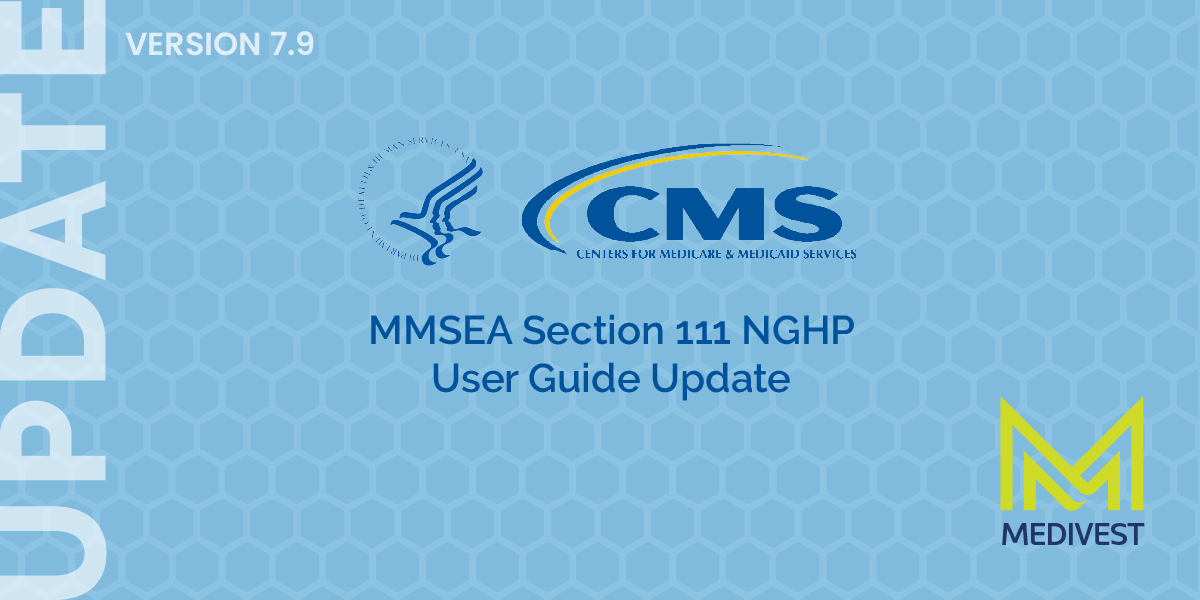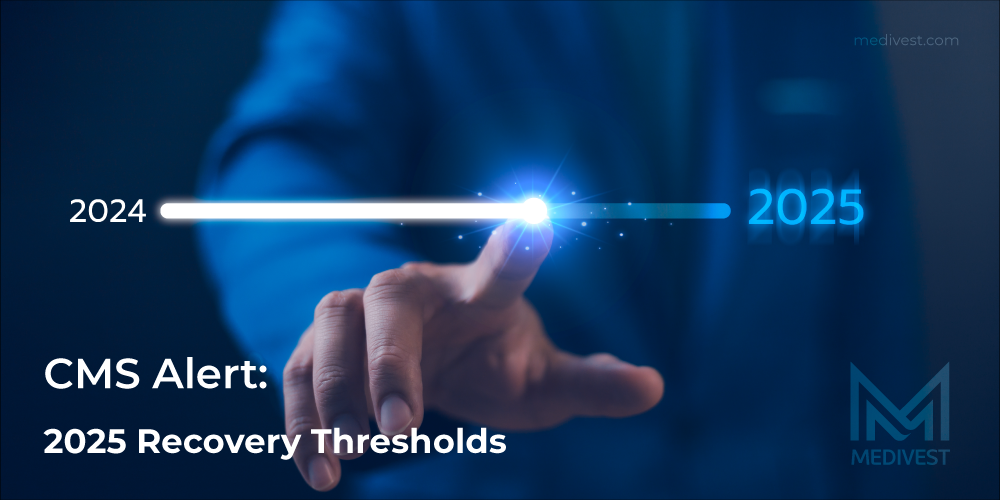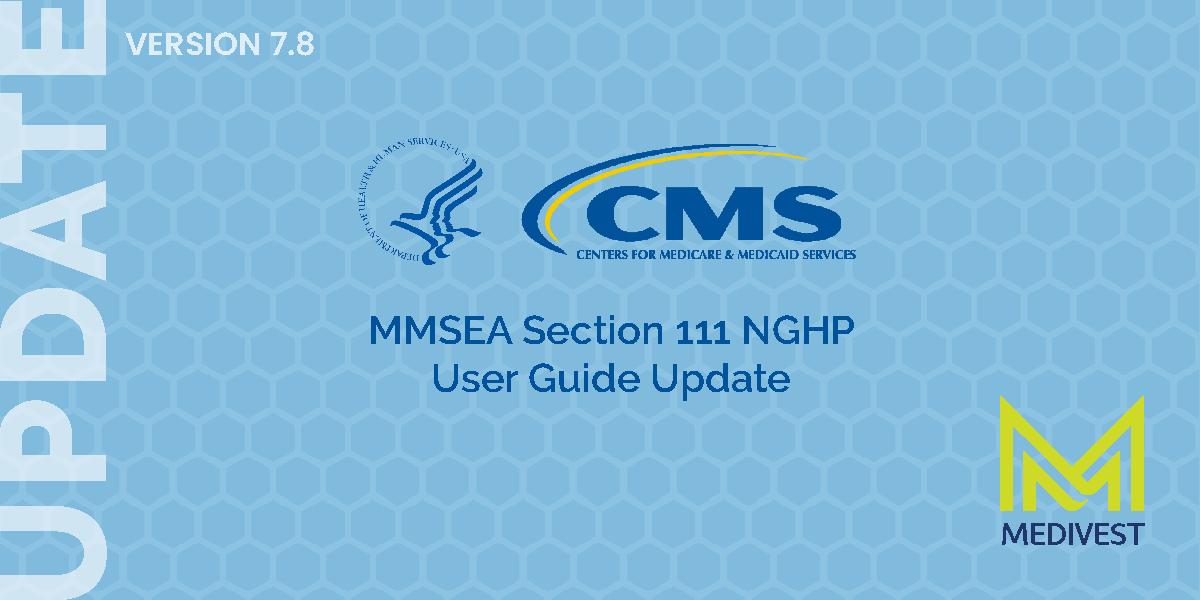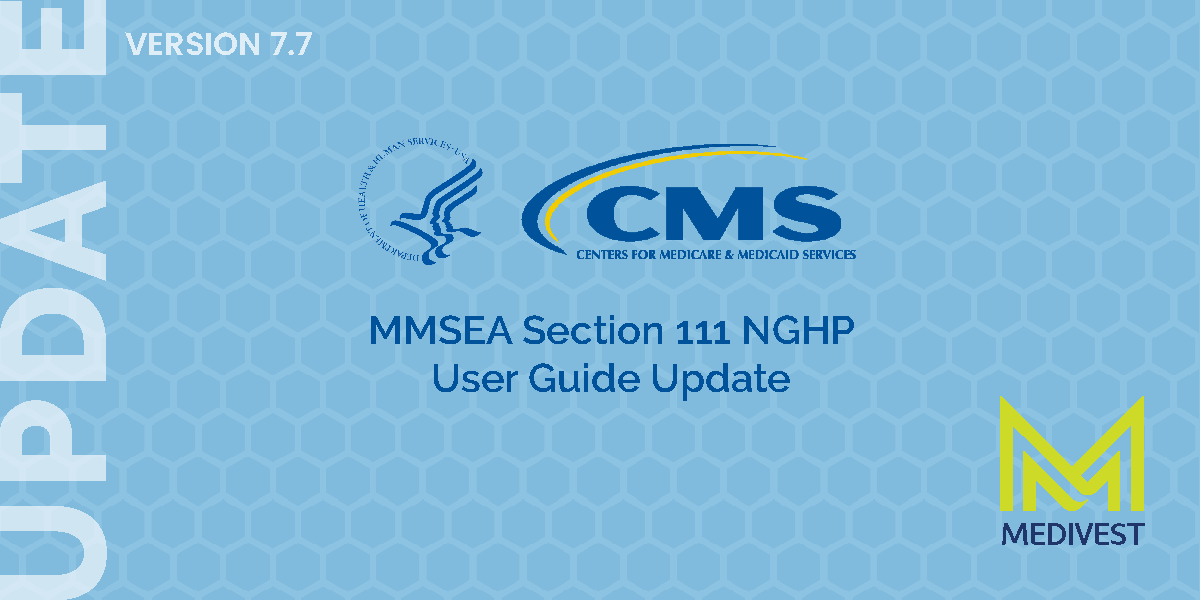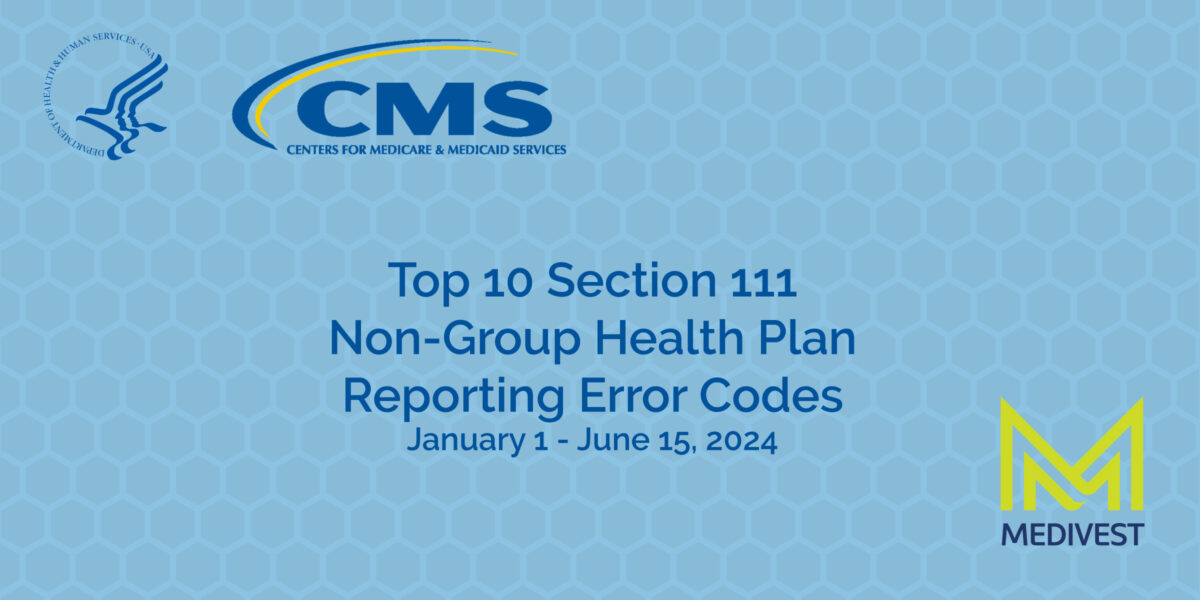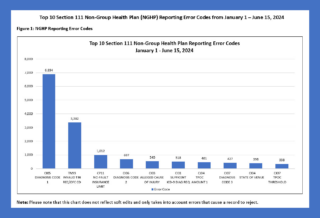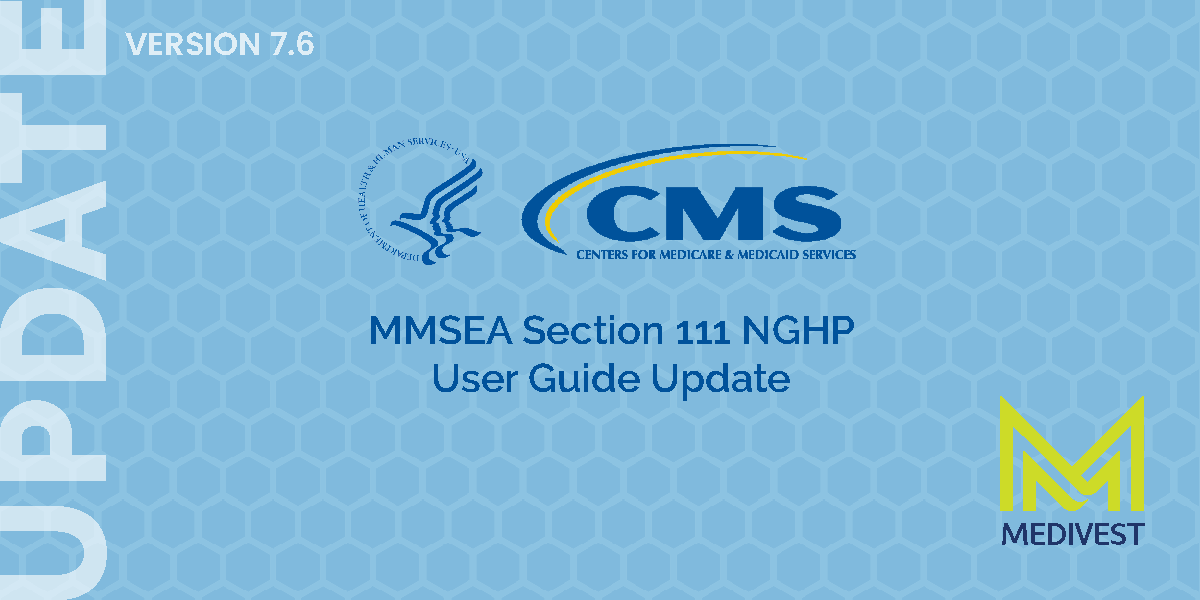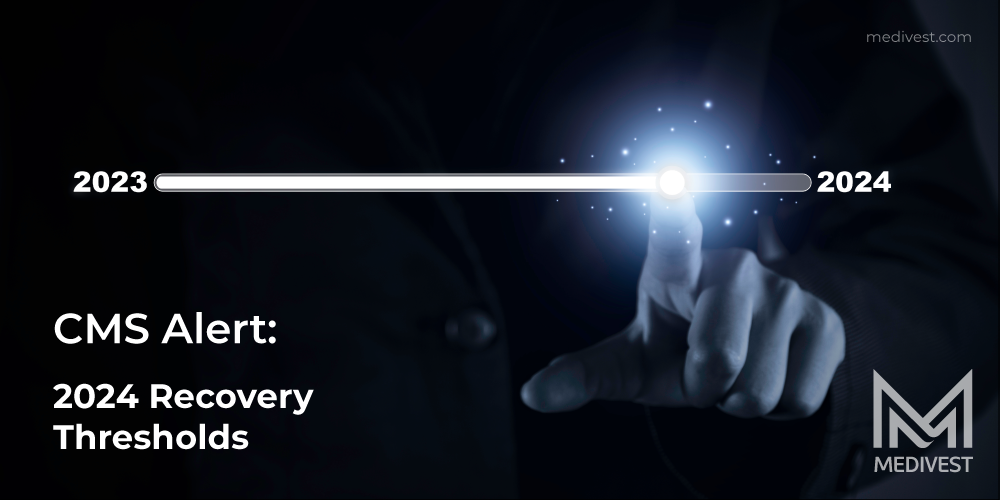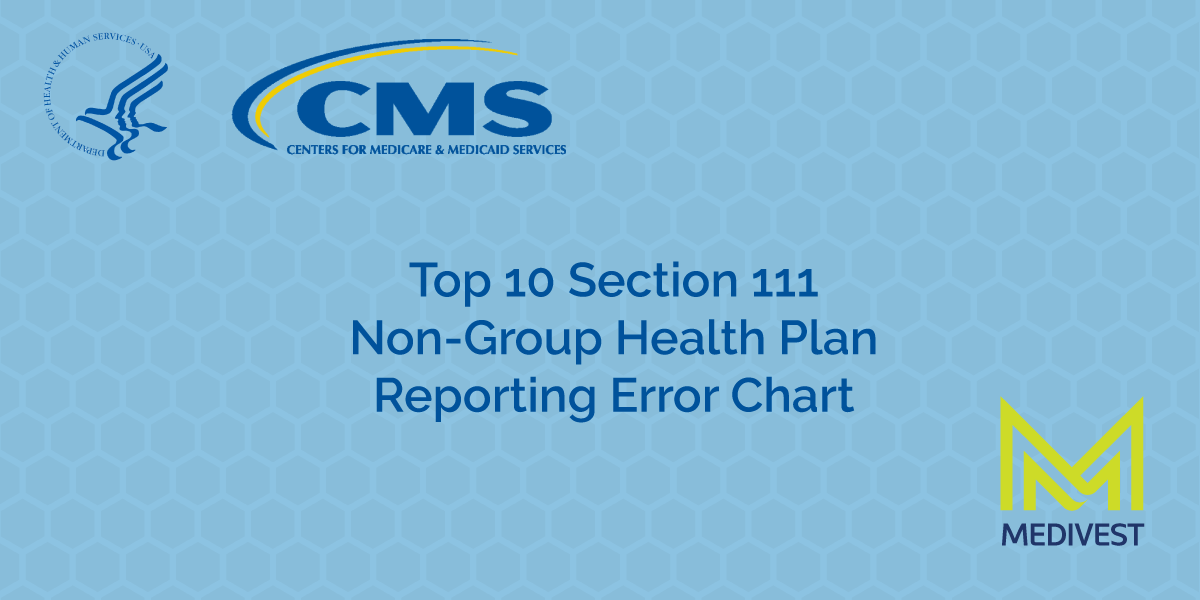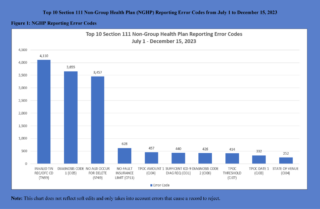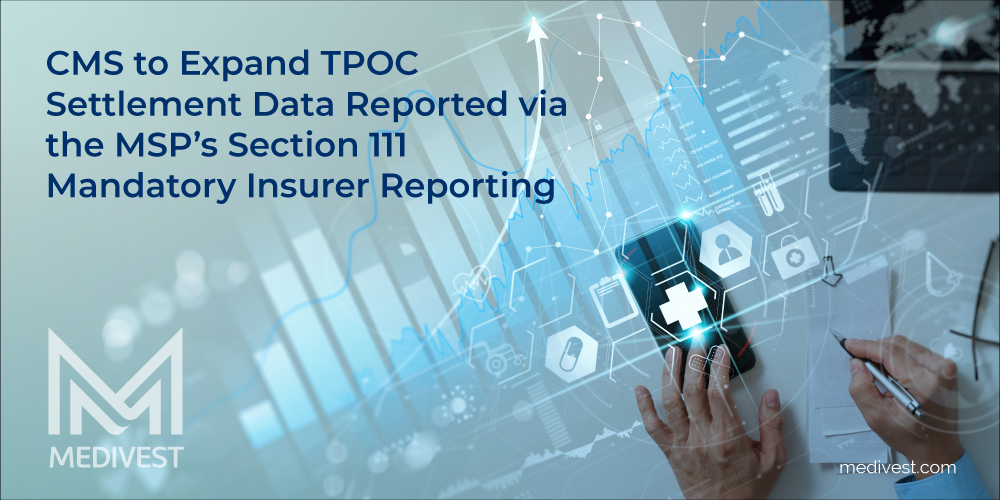On April 7, 2025, the Centers for Medicare & Medicaid Services (CMS) updated the MMSEA Section 111 NGHP User Guide to version 8.0. The newer version has been posted to the NGHP User Guide page, found here. The NGHP User Guide to version 8.0 replaces Version 7.9 which was released on January 17, 2025.
MMSEA III – April 7, 2025 – NGHP User Guide version 8.0 Downloads
Chapter 1: Introduction and Overview
The updates listed below have been made to the Introduction and Overview Chapter Version 8.0 of the NGHP User Guide. As indicated on prior Section 111 NGHP Town Hall teleconferences, the Centers for Medicare & Medicaid Services (CMS) continue to review reporting requirements and will post any applicable updates in the form of revisions to Alerts and the user guide as necessary. There are no changes for this version.
Chapter II: Registration Procedures
The update below has been made to the Registration Procedures Chapter Version 8.0 of the NGHP User Guide. As indicated in prior Section 111 NGHP Town Hall teleconferences, the Centers for Medicare & Medicaid Services (CMS) continue to review reporting requirements and will post any applicable updates in the form of revisions to Alerts and the user guide as necessary. To align with new WCMSA reporting requirements effective April 4, 2025, field numbers have been updated throughout this guide.
Chapter III: Policy Guidance
The updates listed below have been made to the Policy Guidance Chapter Version 8.0 of the NGHP User Guide. As indicated in prior Section 111 NGHP Town Hall teleconferences, the Centers for Medicare & Medicaid Services (CMS) continue to review reporting requirements and will post any applicable updates in the form of revisions to Alerts and the user guide as necessary. To align with new WCMSA reporting requirements effective April 4, 2025, field numbers have been updated throughout this guide.
Chapter IV: Technical Information
The updates listed below have been made to the Technical Information Chapter Version 8.0 of the NGHP User Guide. As indicated in prior Section 111 NGHP Town Hall teleconferences, the Centers for Medicare & Medicaid Services (CMS) continue to review reporting requirements and will post any applicable updates in the form of revisions to Alerts and the user guide, as necessary. A clarification has been added that the reporting threshold does apply to non-trauma no-fault and workers’ compensation cases (Section 6.4). The Event Table has been updated to include three new scenarios involving MSA corrections (Section 6.6.4). To align with new WCMSA reporting requirements effective April 4, 2025, field numbers have been updated throughout this guide.
Chapter V: Appendices
The updates listed below have been made to the Appendices Chapter Version 8.0 of the NGHP User Guide. As indicated in prior Section 111 NGHP Town Hall teleconferences, the Centers for Medicare & Medicaid Services (CMS) continue to review reporting requirements and will post any applicable updates in the form of revisions to Alerts and the user guide as necessary. To align with new WCMSA reporting requirements effective April 4, 2025, field numbers have been updated throughout this guide. To reflect improved reporting requirements, Zip+4 section guidance has been updated (Appendix A, Appendix B, and Appendix G). To ensure consistency of data, as of October 6, 2025, the Recovery Agent TIN field is required if agent name is submitted (Appendix B and Appendix G).
270/271 Health Care Eligibility Benefit Inquiry and Response Companion Guide for Mandatory Reporting Non-GHP Entities Version 6.0
The email address for contacting an Electronic Data Interchange (EDI) Representative has changed to COBVA@bcrcgdit.com. However, COBVA emails coming from CMS now show the address as COBVA@mail.cms.hhs.gov (Customer Support).
For Additional Information
Medivest will continue to monitor changes occurring at CMS and will keep its readers up to date when such changes are announced. For questions, feel free to reach out to the Medivest representative in your area by clicking here or call us direct at 877.725.2467.



